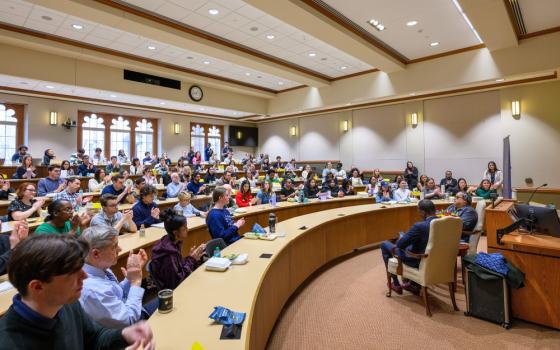After a fairly good showing in this summer’s romantic comedy “The Proposal”, Sandra Bullock now plays Mary Magdalene Horowitz (a Jewish-Catholic) crossword puzzle creator in her new film "All about Steve." She has a bad case of logorrhea (verbal diarrhea).
It's a challenge at first to get a fix on Mary's character and her fixation with red disco boots. She's too old to be living at home, yet she is. She is a professional, but barely working. Her mother sets her up on a blind date with Steve (Bradley Cooper), a cameraman for a Sacramento-based cable news station.
She almost cancels, but when she sees Steve her hormones go into overdrive. He goes along - for a few moments. When she doesn't stop talking, defining words as she goes along, he realizes he needs to distance himself from someone who presents like a whack job. As he untangles himself he invites Mary to join him in Tucson to cover a news story. He doesn't mean it, but she is oblivious and talks her way to Tucson, AZ.
Steve can't believe it when she shows up, but the smarmy Hartman (Thomas Haden Church), the news "journalist", makes sure she keeps following the news team from one freakish news story to the next (a baby born with three legs, a group of deaf children who fall in an abandoned mine). A young woman and man befriend Mary and drive her from place to place. They are all - different.
The reviews for "All about Steve" are pretty dismissive, but at the end I thought that it wasn’t a total loss. The people "praying" or joining together in solidarity for the rights of the 3-legged girl and then the children (and Mary) who fall in the well, juxtaposed with the artificial, superficial press corps that follow tabloid stories (hoping for a break that will turn the "journalists" into stars) is classic: the "un-normal" freaks vis-a-vis the “normal” poseur news media are looking at each other across a fence, as if in a mirror.
Who determines what is "normal"? Who defines normal in the world of words and meanings? French philosopher, sociologist and historian Michel Foucault (1926-1984) asked who or what normalizes behaviors and believed it was a largely governmental tactic for social control.
The obvious answer in "All about Steve" is that the media determine what is normal by reporting on what is bizarre. They are saying: “this weird stuff is news and you are okay because look how not-okay all these people are. In “All about Steve” the media are the arbiters of "normal".
So here is an entertainment film commenting on information media: is the pot calling the kettle black? Or is the film a testament to unity in diversity? And the film is not all about Steve at all. It’s all about Mary – and anyone who is different.
The crowd of "witnesses" holding candles in solidarity, content in their diversity and identities, win the film.
Mary Magdalene Horowitz keeps talking as if to fill up her empty inner self, only to realize she isn’t empty at all. She is a person in search of self who discovers she already knows who she is. It's other people who do not accept her non-stop narration and her red boots. She doesn't fit in. But then she doesn't have a sense of how she is perceived by others so she can then modify her behavior and be accepted as "normal" - the agonizing routine many of us go through so we can "belong."
This isn't a perfect film; Mary's persona was annoying; I think the filmmakers just let go of the story at a certain point. But the film's heart was in the right place.
Bradley Cooper was a regular guy; Thomas Haden Church was bland. And Sandra? I'd love to see her do some better stories like "While You Were Sleeping"
or "Speed". Contrasting and exaggerating differences is the oldest laugh-line of all time. Sometimes it just falls flat.
But perhaps it is the romantic comedy genre that is in trouble: creative storytellers needed!




